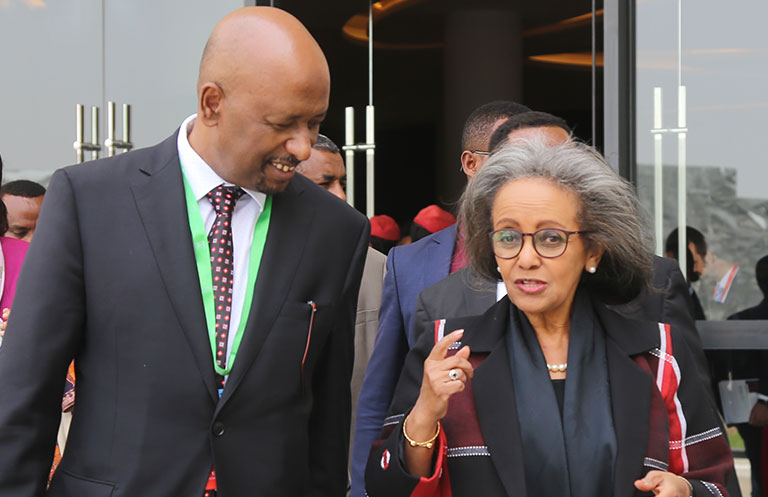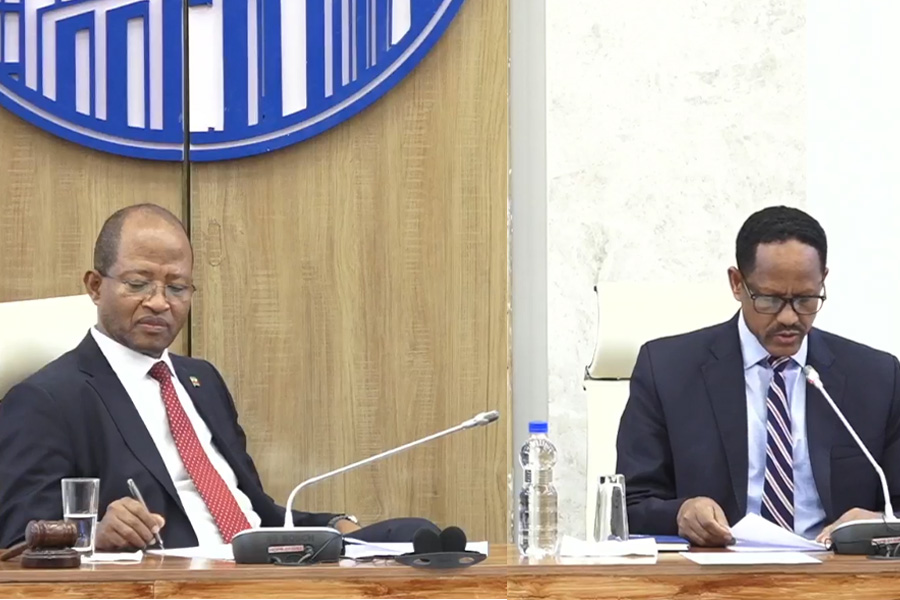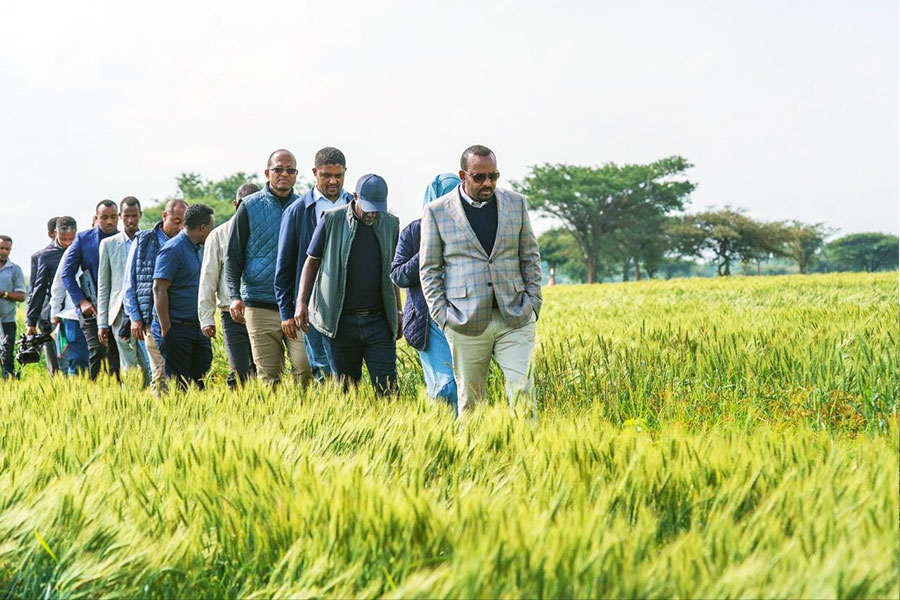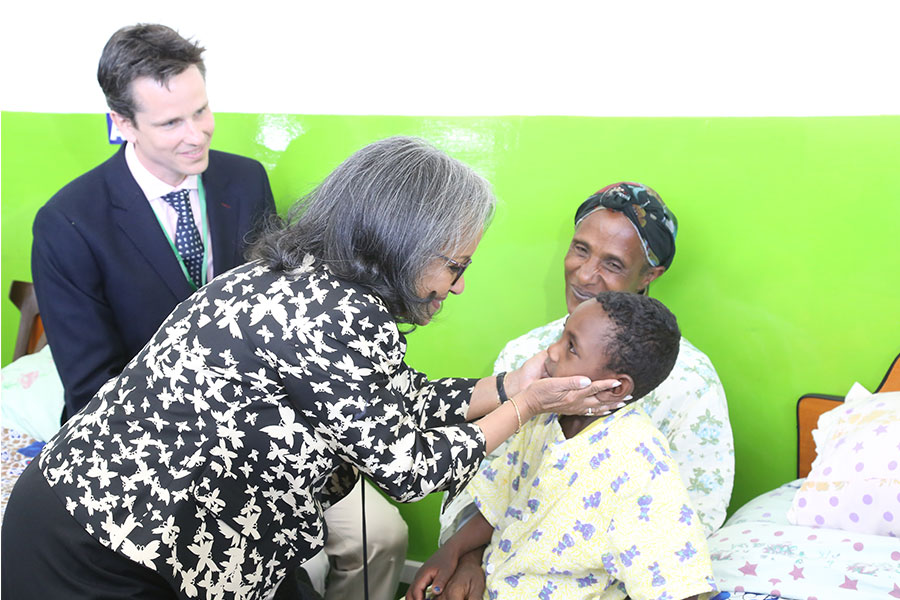
Nov 5 , 2022
By Abraham Tekle
Pretoria’s agreement between delegates of the federal government and the TPLF to cease hostilities positively signals that the civil war will end soon. But the world must take action to save lives. Humanitarian intervention is needed to prevent mass starvation.
The dreadful food insecurity in conflict-affected areas requires humanitarian funding from the international community. Despite improvements in humanitarian assistance after the United Nations and non-governmental organisations’ valiant attempts to address the obstruction of aid operations, the recent resumption of full-blown war had undone that progress. Food aid to the people in and around Tigray was blocked.
Now the warring parties have agreed to stop shooting, humanitarian assistance must resume.
It was reported that the country is at risk of conflict-induced famine. Such widespread suffering resulted from the direct and indirect consequences of conflict and violence along with the behaviour of the fighting parties. In extreme cases, such actors deliberately cut off access to the commercial supplies and essential services civilians rely on to survive. Hunger is used as a tactic of war.
Approximately 20 million people face high levels of food insecurity, of which 13 million are victims of war-related famine that need life-saving food assistance. Withstanding this, the underscored conflict impacts every aspect of agrifood systems, reducing production, destroying crops, disrupting markets and restricting access in the north. This will lead to a complete disruption of livelihoods and mass displacements if not addressed soon.
It is essential for the government, warring forces and the world to act now to arrest the calamities facing the people. Preventing conflict is the most effective means of avoiding famine.
Although humanitarian assistance is essential, it does not solve related problems. The solution is durable peace, which means putting pressure on all parties to keep their promises and contribute their share to the well-being of citizens.
Ethiopia and the Horn of Africa have been prone to multiple non-military interventions distributing aid and saving thousands of lives. During Sudan’s civil war from the late 1980s to the early 2000s, airlift operations brought help into rebel-occupied areas of southern Sudan that were inaccessible to UN agencies. Similarly, a cross-border humanitarian operation from Sudan into insurgent-held territory in Tigray and Eritrea lasted for a decade from 1981.
These examples affirm that more aggressive options should be urged to reach areas prone to drought and affected by an ongoing militarised conflict.
Spoilers’ intervention should be put into account. Spoilers are unconventional conflict drivers. Whatever their intention, they exaserbate the already worsened security and humanitarian situations. It has been witnessed that humanitarian organisations often face impediments and harassment on their staff and the looting of their assets. Lack of international funding threatens the operation. The government and humanitarian agencies must ensure security, using maximum efforts to provide aid and identify the aggressors.
Vigorously pursuing peaceful negotiations is a solution for conflict resolution. It is too vital to encourage the state and armed groups to abide by their obligations under international law, ensuring a rapid, unimpeded passage for humanitarians. Resuming aid is crucial now.
PUBLISHED ON
Nov 05,2022 [ VOL
23 , NO
1175]


Fortune News | Jun 23,2019

View From Arada | Feb 01,2020

Fortune News | Nov 24,2024

View From Arada | Apr 15,2023

Fortune News | Oct 22,2022

Fortune News | Mar 23,2019

Radar | Mar 06,2021

Radar | Sep 18,2021

Commentaries | Oct 16,2020

Fortune News | Jan 26,2019

My Opinion | 131548 Views | Aug 14,2021

My Opinion | 127903 Views | Aug 21,2021

My Opinion | 125879 Views | Sep 10,2021

My Opinion | 123510 Views | Aug 07,2021

Dec 22 , 2024 . By TIZITA SHEWAFERAW
Charged with transforming colossal state-owned enterprises into modern and competitiv...

Aug 18 , 2024 . By AKSAH ITALO
Although predictable Yonas Zerihun's job in the ride-hailing service is not immune to...

Jul 28 , 2024 . By TIZITA SHEWAFERAW
Unhabitual, perhaps too many, Samuel Gebreyohannes, 38, used to occasionally enjoy a couple of beers at breakfast. However, he recently swit...

Jul 13 , 2024 . By AKSAH ITALO
Investors who rely on tractors, trucks, and field vehicles for commuting, transporting commodities, and f...

Jun 28 , 2025
Meseret Damtie, the assertive auditor general, has never been shy about naming names...

Jun 21 , 2025
A well-worn adage says, “Budget is not destiny, but it is direction.” Examining t...

Jun 14 , 2025
Yet again, the Horn of Africa is bracing for trouble. A region already frayed by wars...

Jun 7 , 2025
Few promises shine brighter in Addis Abeba than the pledge of a roof for every family...

Jun 29 , 2025
Addis Abeba's first rains have coincided with a sweeping rise in private school tuition, prompting the city's education...

Jun 29 , 2025 . By BEZAWIT HULUAGER
Central Bank Governor Mamo Mihretu claimed a bold reconfiguration of monetary policy...

Jun 29 , 2025 . By BEZAWIT HULUAGER
The federal government is betting on a sweeping overhaul of the driver licensing regi...

Jun 29 , 2025 . By NAHOM AYELE
Gadaa Bank has listed 1.2 million shares on the Ethiopian Securities Exchange (ESX),...